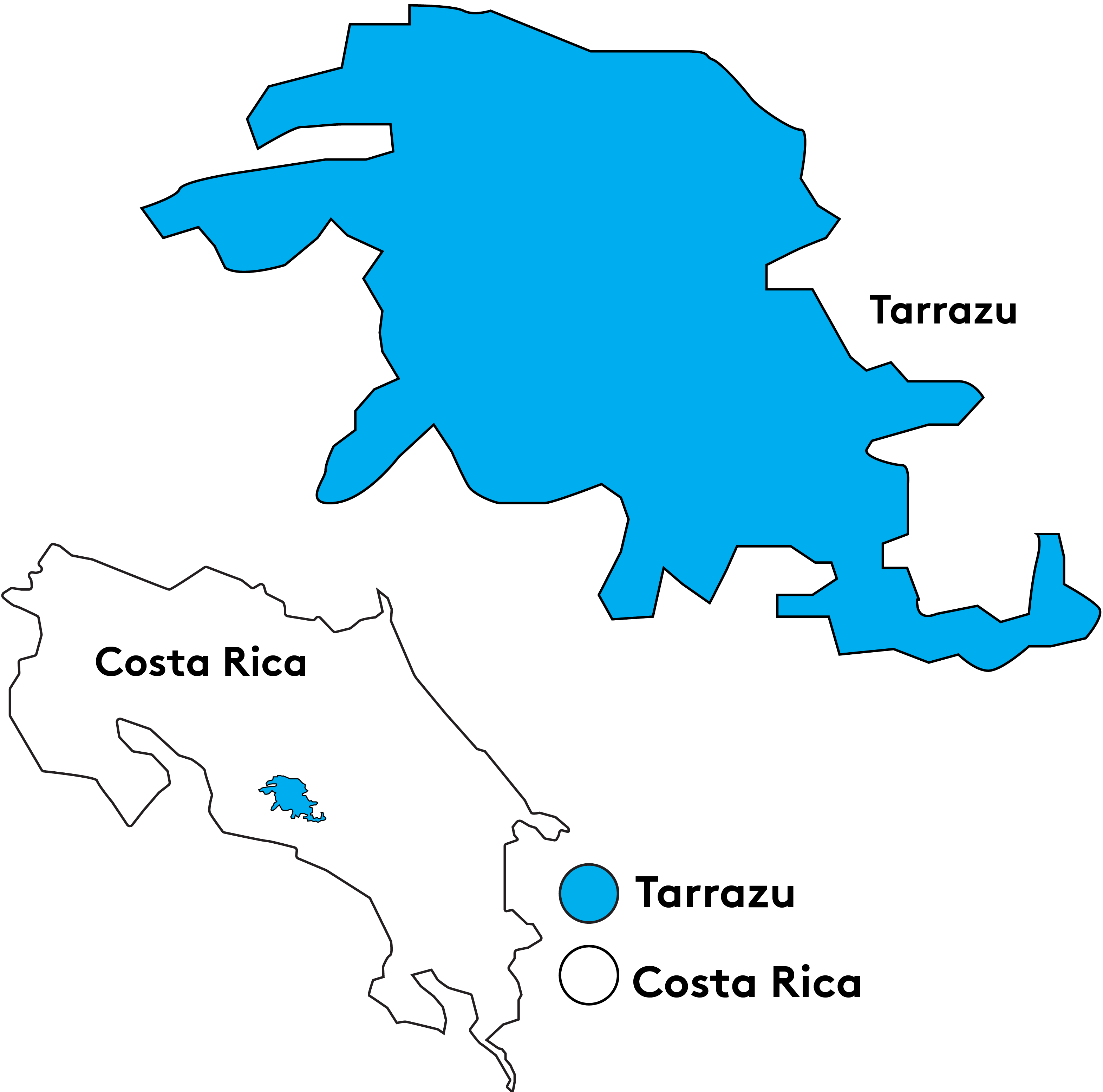Region
Tarrazú
The Tarrazú region lies high in the mountains of the southern Pacific region south of Costa Rica’s capital city of San Jose. This area is one of the most densely planted high altitude regions in Central America, with many farms at or above 2000 meters above sea level. It is locally known as “Zona de Los Santos” for the number of towns with “San” or “Santa” in their names.
Tarrazú’s climate is characterized by two well-defined seasons; a rainy season lasting seven months (May through November) and a dry season (December through April). This encourages uniform coffee blossoming. On average, precipitation is around 2,400 millimeters (94.5 inches) per year, with an average annual temperature of 19°C (66.2°F).
The fertile, volcanic soils and rolling mountainsides of Tarrazú are well-suited for agriculture. Smallholders grow bananas, avocado, and citrus as well as coffee on properties passed between generations. The spirit of community and family is strong in Tarrazú, with producers caring for their land with pride. Many farms in Tarrazú include primary forest and some degree of shade trees interspersed with coffee, and producers take care to protect the natural water sources that spring up from the mountainsides.




